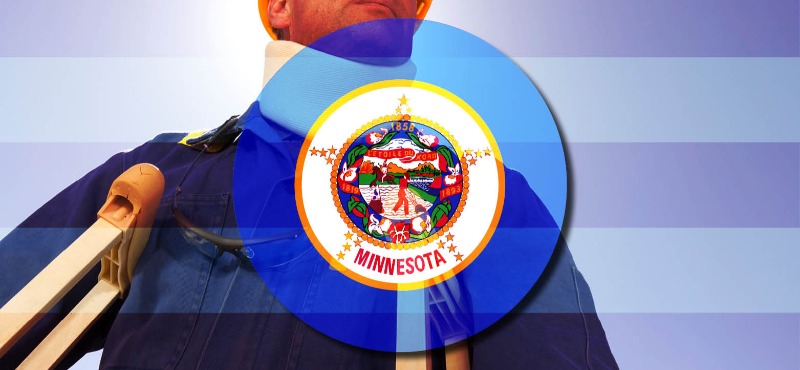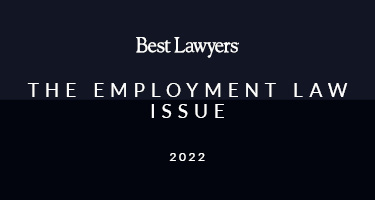In 2017 the Minnesota Supreme Court issued eight opinions involving workers’ compensation matters. To say the least, 2017 was an exceptionally important year in Minnesota workers’ compensation law. Below is a brief summary of the eight Supreme Court cases.
Gianotti v. Indep. Sch. Dist. 152, 889 N.W.2d 796 (Minn. 2017)
The compensation judge denied the employee’s claim that she sustained a concussion and/or post-concussive syndrome. The compensation judge relied on the opinion of a psychologist. The Minnesota Workers’ Compensation Court of Appeals, hereinafter referred to as (WCCA), reversed the compensation judge’s findings and order and determined that the psychologist lacked foundation and was not competent as an expert. The Minnesota Supreme Court reversed the WCCA that the psychologist was not competent to render opinions in his field of expertise and reinstated the compensation judge’s findings.
Gilbertson v. Williams Dingmann, LLC, 894 N.W.2d 148 (Minn. 2017)
The employer offered the employee a job within restrictions set by the treating doctor. The job was at the same compensation and work schedule as the employee’s previous employment with the employer. The employee declined the job offer. As such, benefits were discontinued. The compensation judge ruled in favor of the employer and terminated wage loss benefits. The WCCA reversed the compensation judge and determined that the job offer by the employer was not consistent with the Rehabilitation Plan because the Rehabilitation Plan did include the option of returning to work with the pre-injury employer. The Minnesota Supreme Court affirmed the decision by the WCCA and held that for the job offer to be valid, it must be part of an agreed upon Rehabilitation Plan.
Hudson v. Trillium Staffing, 896 N.W.2d 536 (Minn. 2017)
The employee sustained an injury to his neck and low back that arose out of and in the course of employment. He was also treated for a traumatic brain injury and psychological injuries. The parties entered into a full, final, and complete settlement that closed out all benefits with the exception of future reasonable medical expenses relating to the low back and neck. The settlement was approved by a compensation judge. Following the settlement, the employee began treatment with a psychiatrist who diagnosed significant mental disabilities and assigned a 75 percent permanent partial disability rating for the traumatic brain injury. The employee filed a Petition to Vacate pursuant to Minn. Stat. §176.461 (2016). The WCCA determined that the employee’s medical condition had substantially changed and accordingly vacated the Award on Stipulation.
The Minnesota Supreme Court reversed the WCCA decision and determined that it had “abused its discretion” in vacating the award. It further noted that the psychiatrist’s report setting forth a 75 percent rating was lacking in foundation and was without a factual basis.
Sanchez v. Dahlke Trailer Sales, Inc., 897 N.W.2d 267 (Minn. 2017)
The employee in this case was an undocumented worker. He sustained an injury that arose out of and in the course of employment. Thereafter, the employer advised the employee that he would be placed on unpaid leave until he could provide paperwork that he could legally work in the United States. Because the employee was an undocumented worker, he could not provide legitimate paperwork evidencing the legal right to work in the United States. The employee sued the employer for retaliatory discharge pursuant to Minn. Stat. §176.82. The District Court granted summary judgment for the employer. The Court of Appeals reversed, and the Supreme Court affirmed. The Supreme Court determined that there was an issue of genuine material fact regarding whether the employee was actually discharged for seeking workers’ compensation benefits. In this regard, the employee asserted that the employer knew about his immigration status well before the workers’ compensation injury. The Supreme Court determined that the Immigration Reform and Control Act (IRCA) did not preempt an undocumented worker’s claim pursuant to Minn. Stat. §176.82.
Hohlt v. Univ. of Minnesota, 897 N.W.2d 777 (Minn. 2017)
The employee worked for the University of Minnesota. She slipped and fell on an icy sidewalk walking to an employer-owned parking ramp after completion of her work shift. She was on a public sidewalk which was maintained by her employer. The compensation judge denied the employee’s claim based upon a factual determination that the hazard the employee faced (i.e., icy sidewalk) was no different than that faced by the general public. The WCCA reversed on the basis that the employee was on the employer’s premises when she was walking a short distance from her place of work to the employer-owned parking ramp.
The Minnesota Supreme Court affirmed the WCCA decision and determined that the employee was faced with an increased risk (i.e., the icy sidewalk), and as such, the injury arose out of her employment. The court further noted that the employee was in the course of her employment because she was walking directly from her work site to a parking ramp owned by the employer. In other words, she was traveling between two employer premises.
Kubis v. Cmty. Mem'l Hosp. Ass'n, 897 N.W.2d 254 (Minn. 2017)
The employee fell while walking up a staircase that was located on the employer premises. The compensation judge denied the claim and found that her injury did not arise out of her employment. She failed to establish an increased risk. The compensation judge rejected the employee’s factual assertion that she was rushing up the stairs because of pressure put upon her by the employer. The WCCA reversed the compensation judge’s findings and order and awarded benefits to the employee. The Supreme Court reversed the WCCA decision and reinstated the compensation judge’s denial. The Supreme Court determined that there was substantial evidence in the record for the WCCA to affirm the judge’s findings and order. The court further noted that the WCCA did not follow the proper standard of review.
Mattick v. Hy-Vee Foods Stores, 898 N.W.2d 616 (Minn. 2017)
The employee sustained an injury to her right ankle while working for the employer. She filed a claim seeking payment for an ankle fusion surgery. The compensation judge denied the employee’s claim for surgery and found that the injury was temporary and had fully resolved. The WCCA reversed the compensation judge’s findings and order on the basis that the independent medical examiner’s opinion lacked foundation.
The Minnesota Supreme Court ruled that the WCCA exceeded its scope of review when it rejected the compensation judge’s findings. It further noted that the compensation judge’s findings were supported by substantial evidence.
Halvorson v. B&F Fastener Supply, 901 N.W.2d 425 (Minn. 2017)
The employee sustained a work-related injury to her right elbow and knees. Eventually she found part-time work with another employer. The employer filed a Rehabilitation Request to terminate rehabilitation services on the basis that the employee was no longer a qualified employee. The compensation judge granted the employer’s request and terminated rehabilitation services on the basis that the employee was no longer a qualified employee because she had returned to work. The WCCA reversed and reinstated rehabilitation benefits. The court noted that for the employer to terminate rehabilitation services there must be a showing of “good cause.”
The Supreme Court affirmed the WCCA decision and held that the employer must show good cause to suspend, terminate, or alter rehabilitation benefits. It cited five bases to establish good cause.
------------------------------
Tom Kieselbach is president of Cousineau, Waldhauser & Kieselbach, P.A. (CWK), a workers’ compensation defense firm in Minnesota. Tom has been listed in Best Lawyers in America© since 1995. CWK is a tier 1 regional firm in Best Law Firms – U.S. News & World Report. Six of its attorneys are listed in Best Lawyers in America: Jim Waldhauser, Tom Kieselbach, Mark Kleinschmidt, Dick Schmidt, Jennifer Fitzgerald, and Tom Coleman.


























